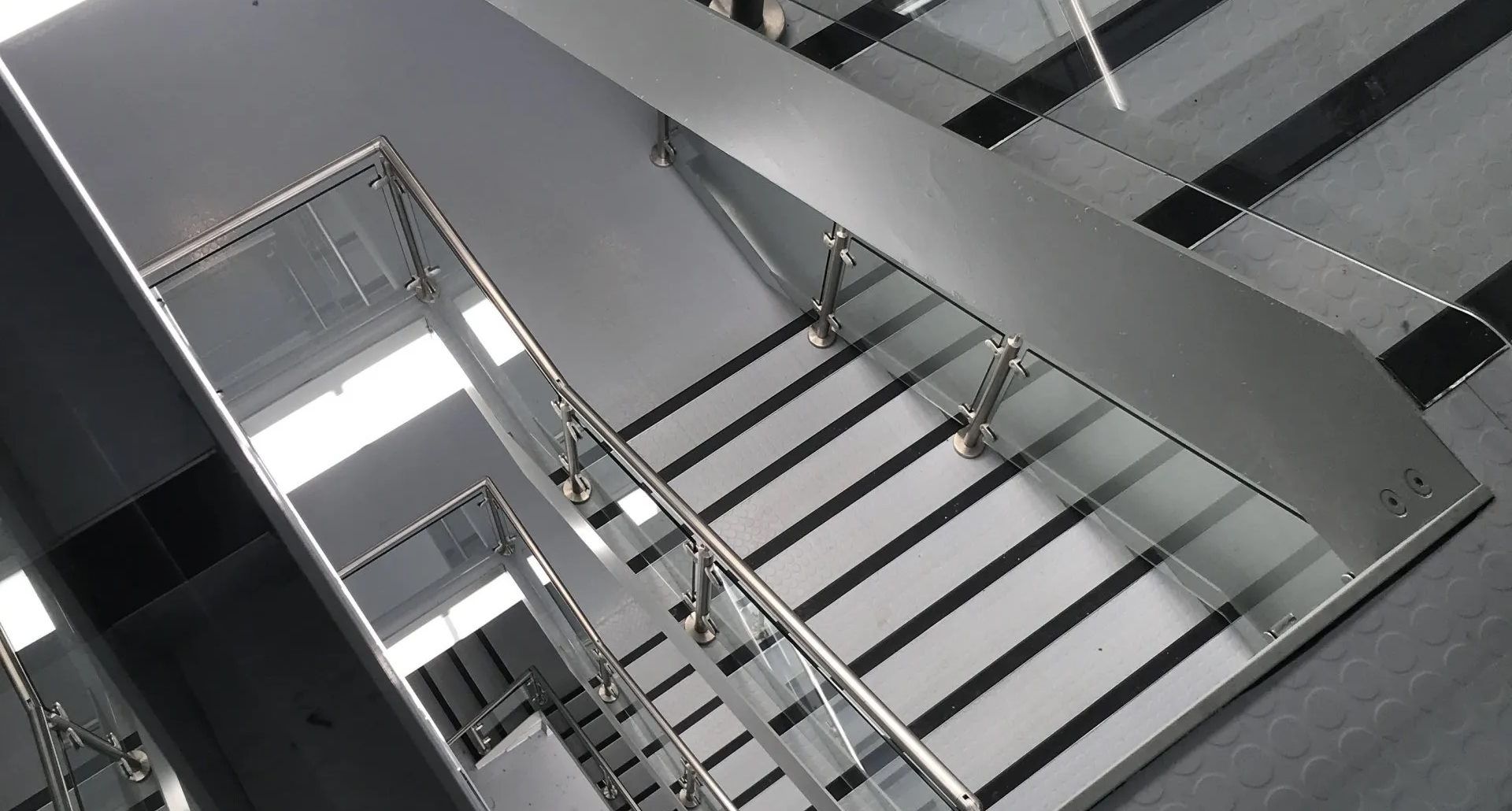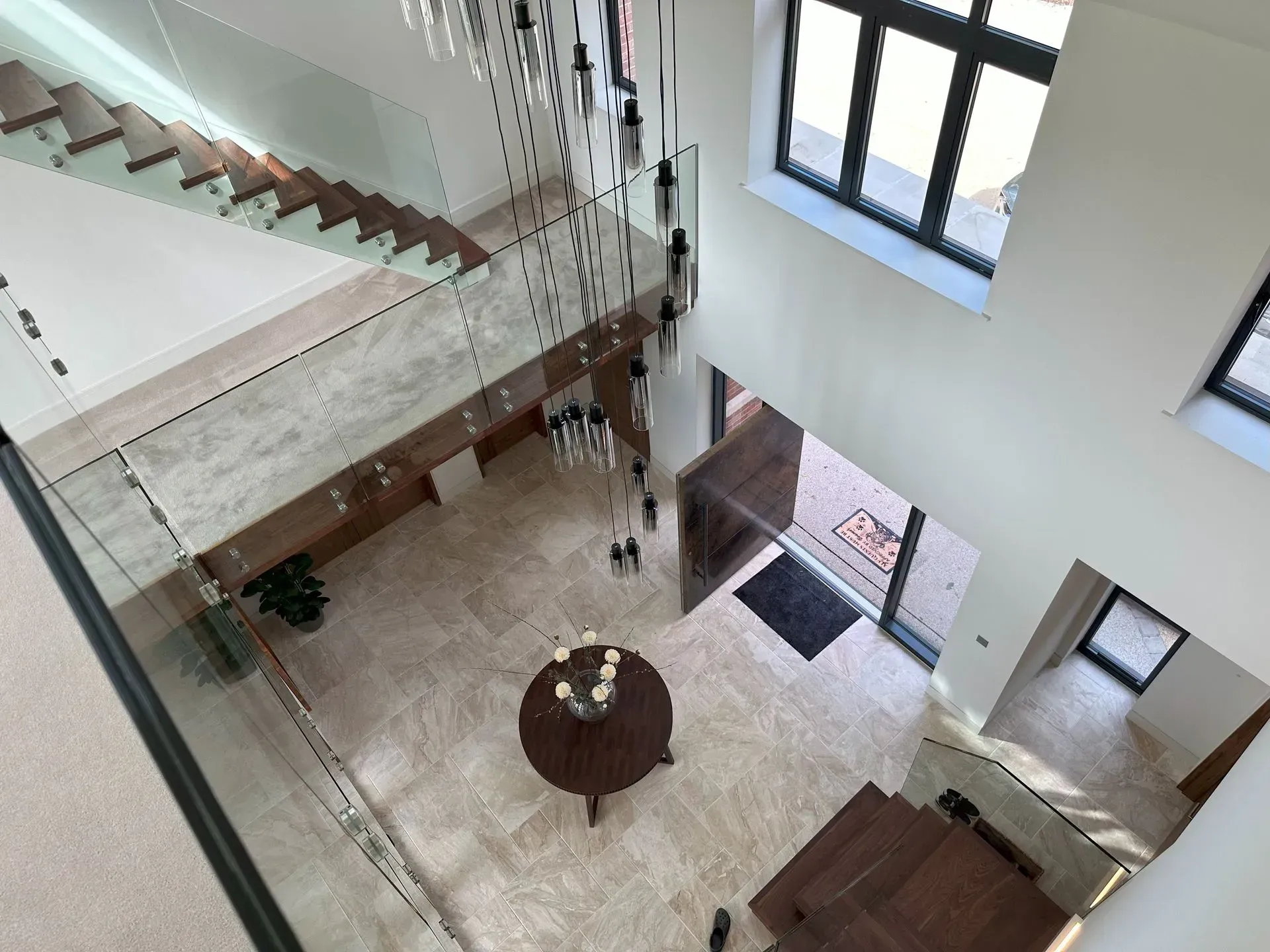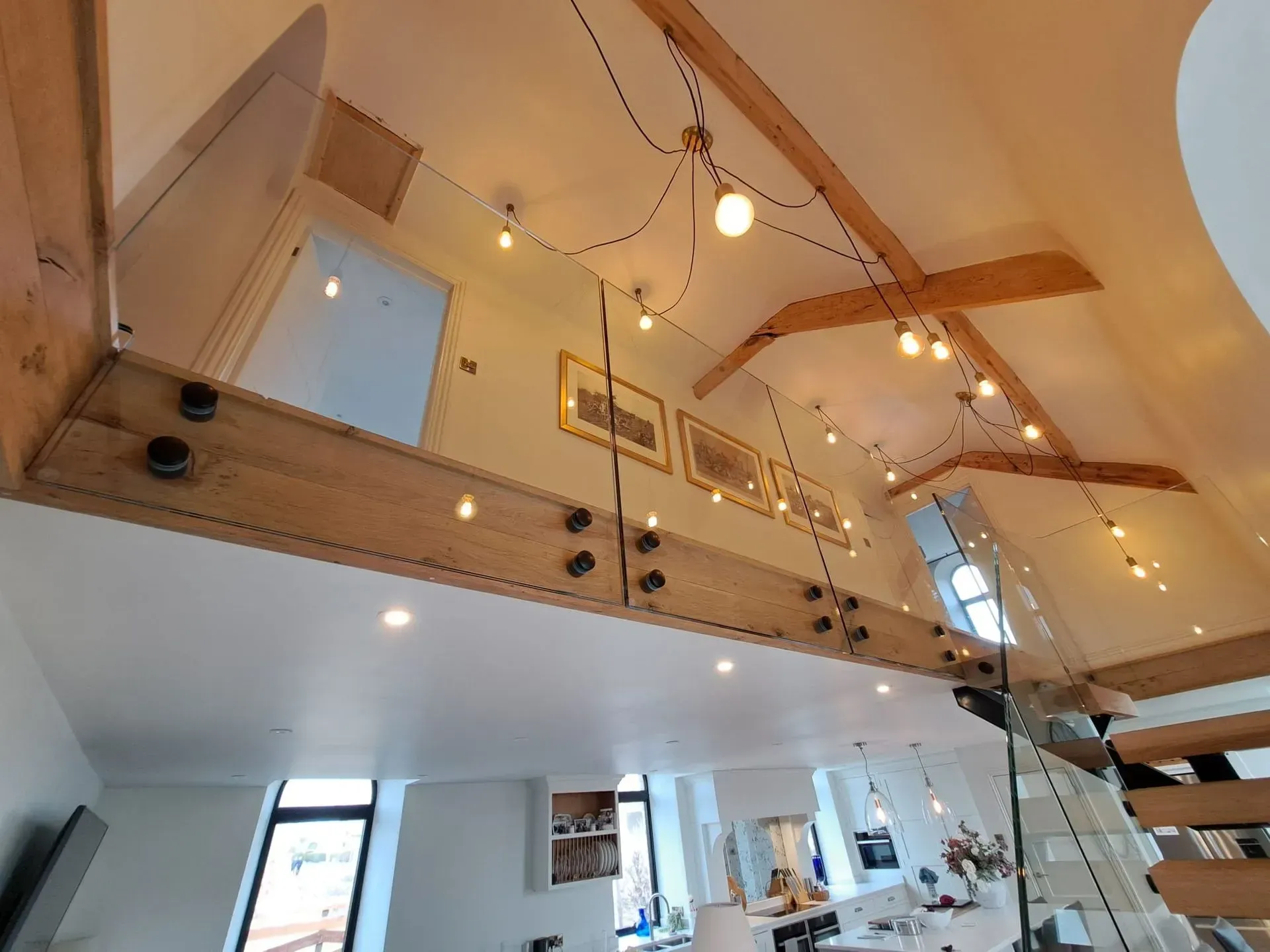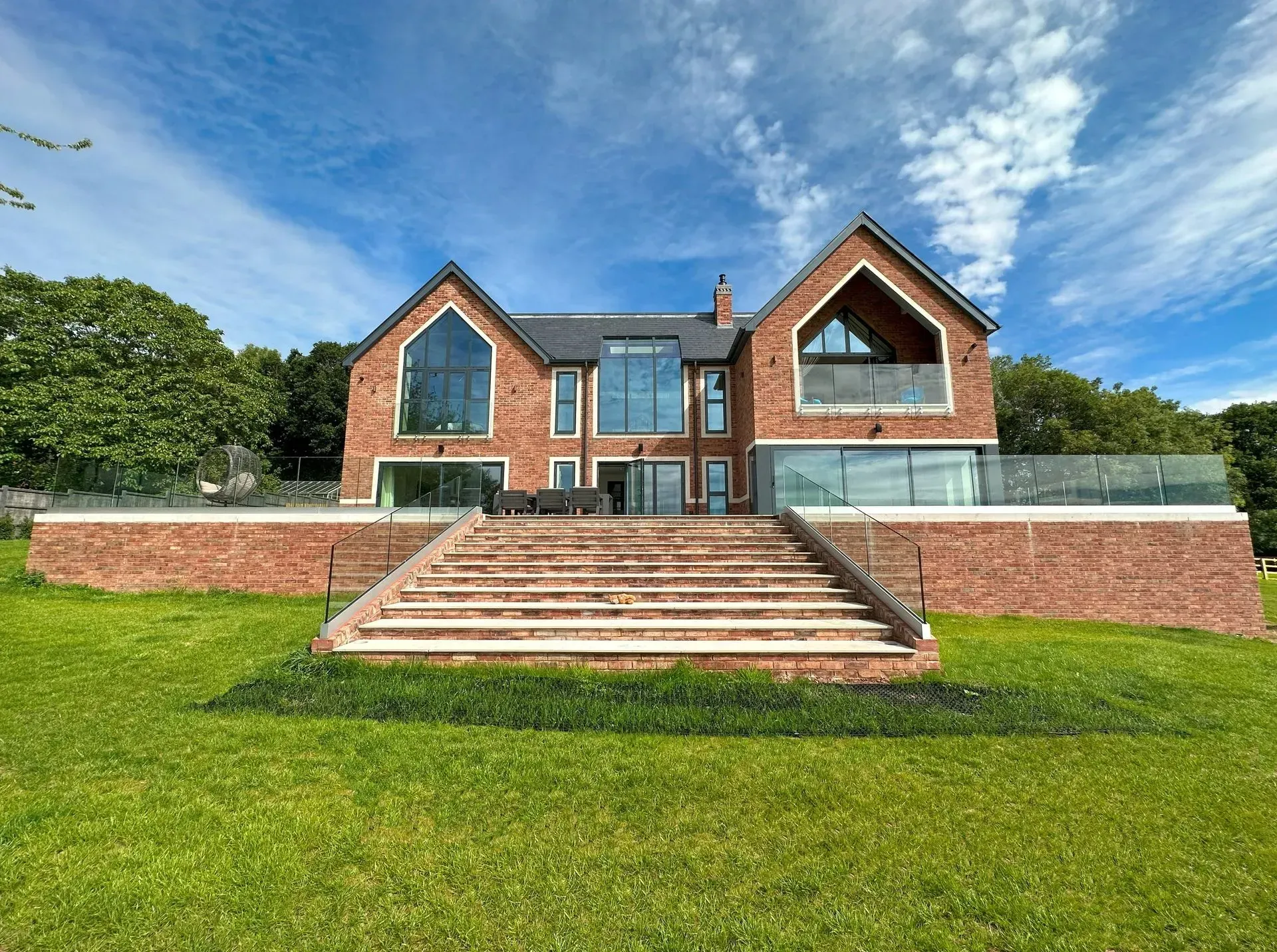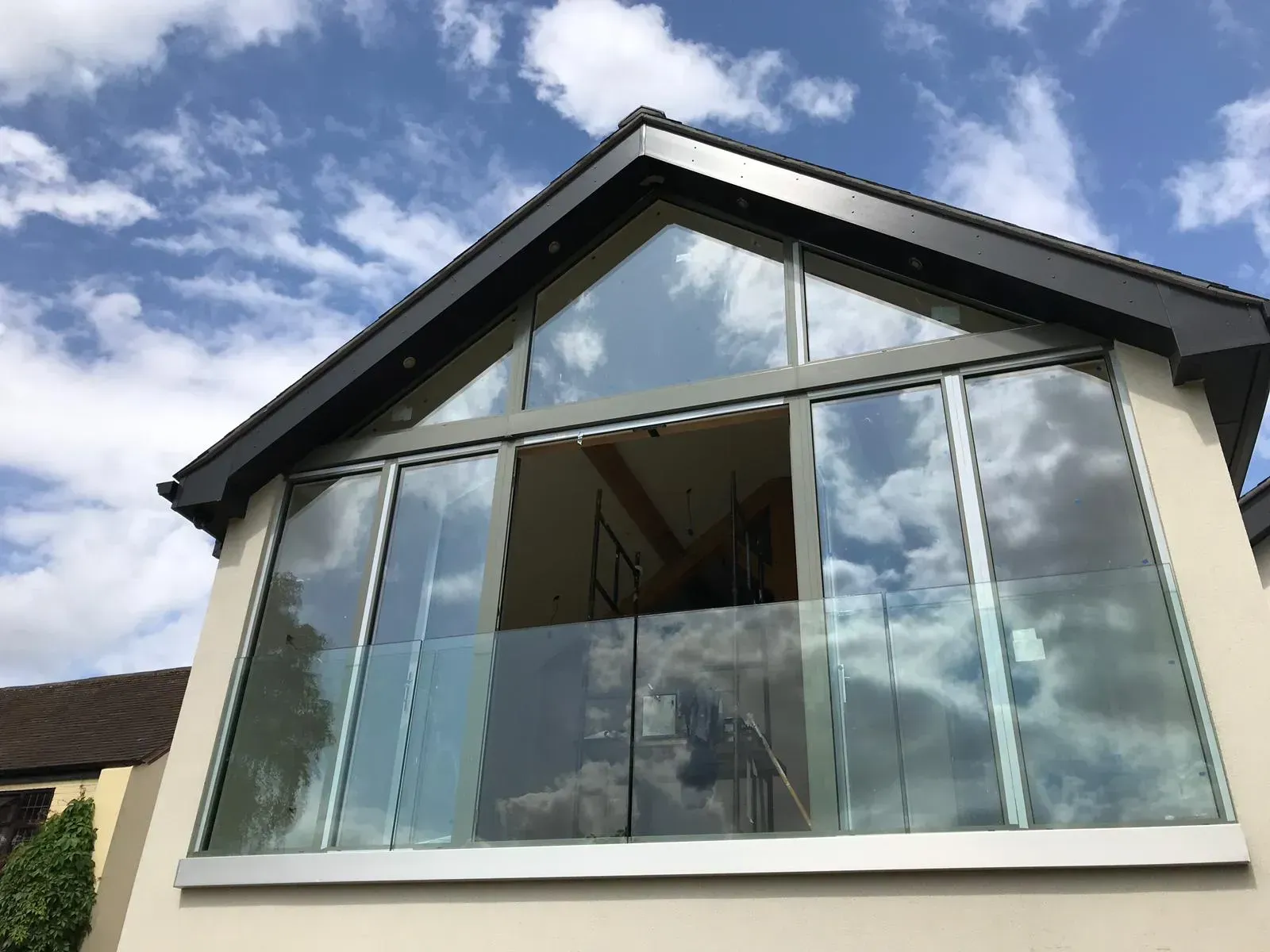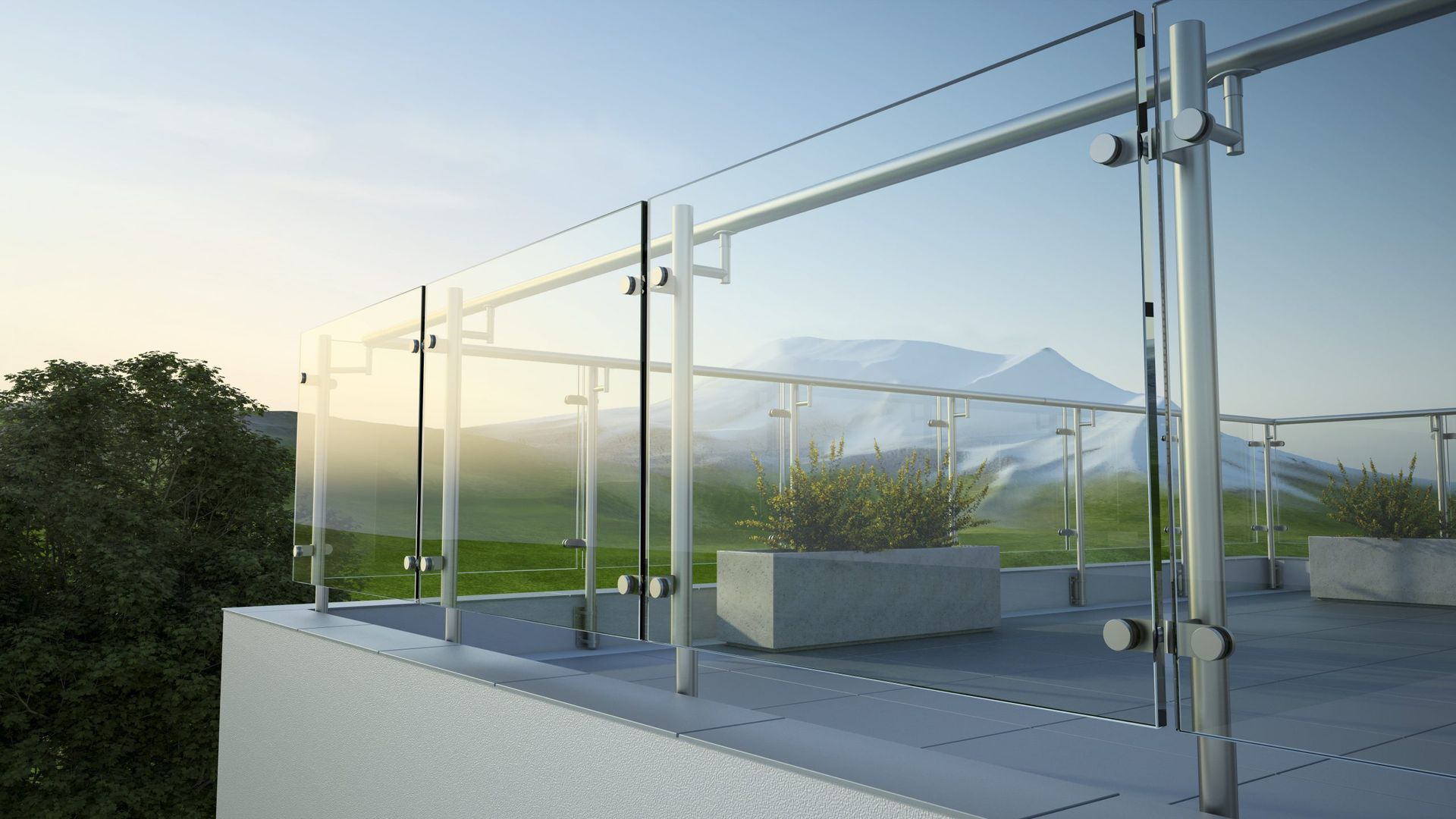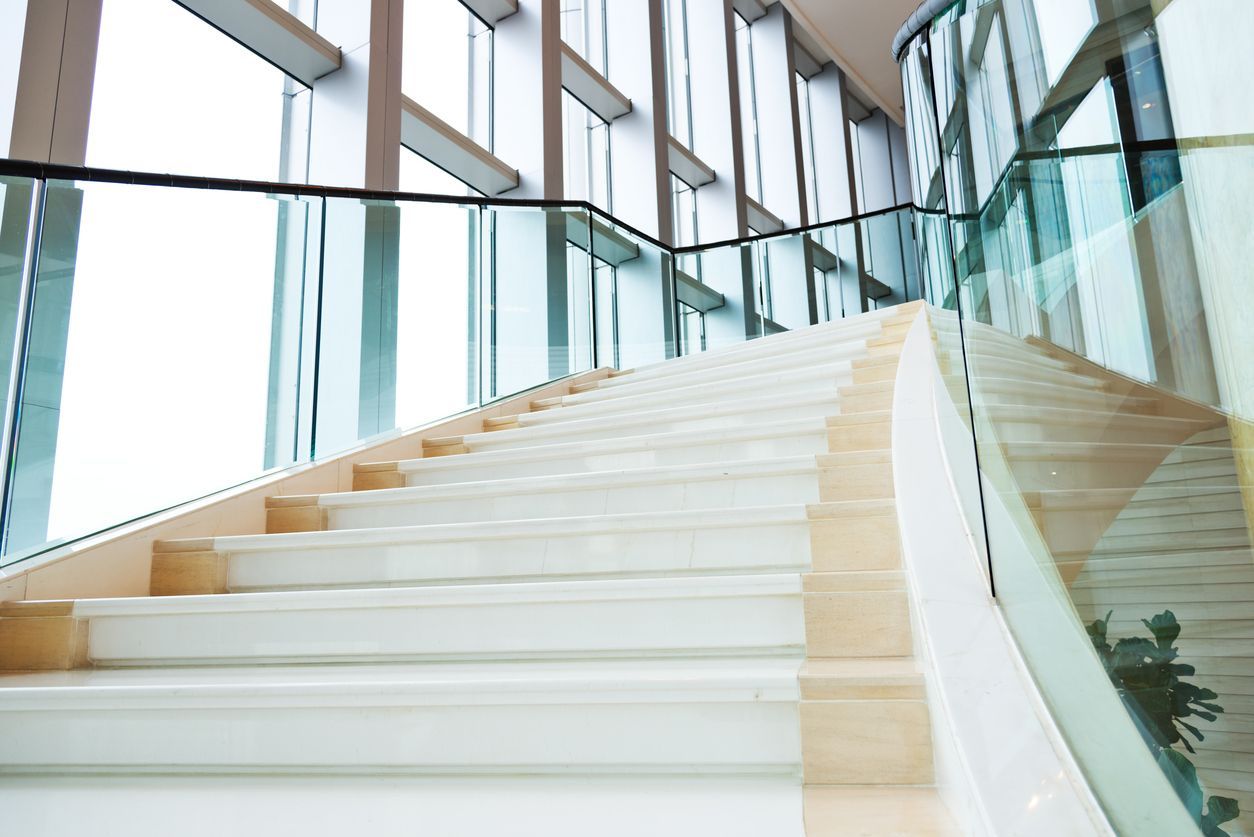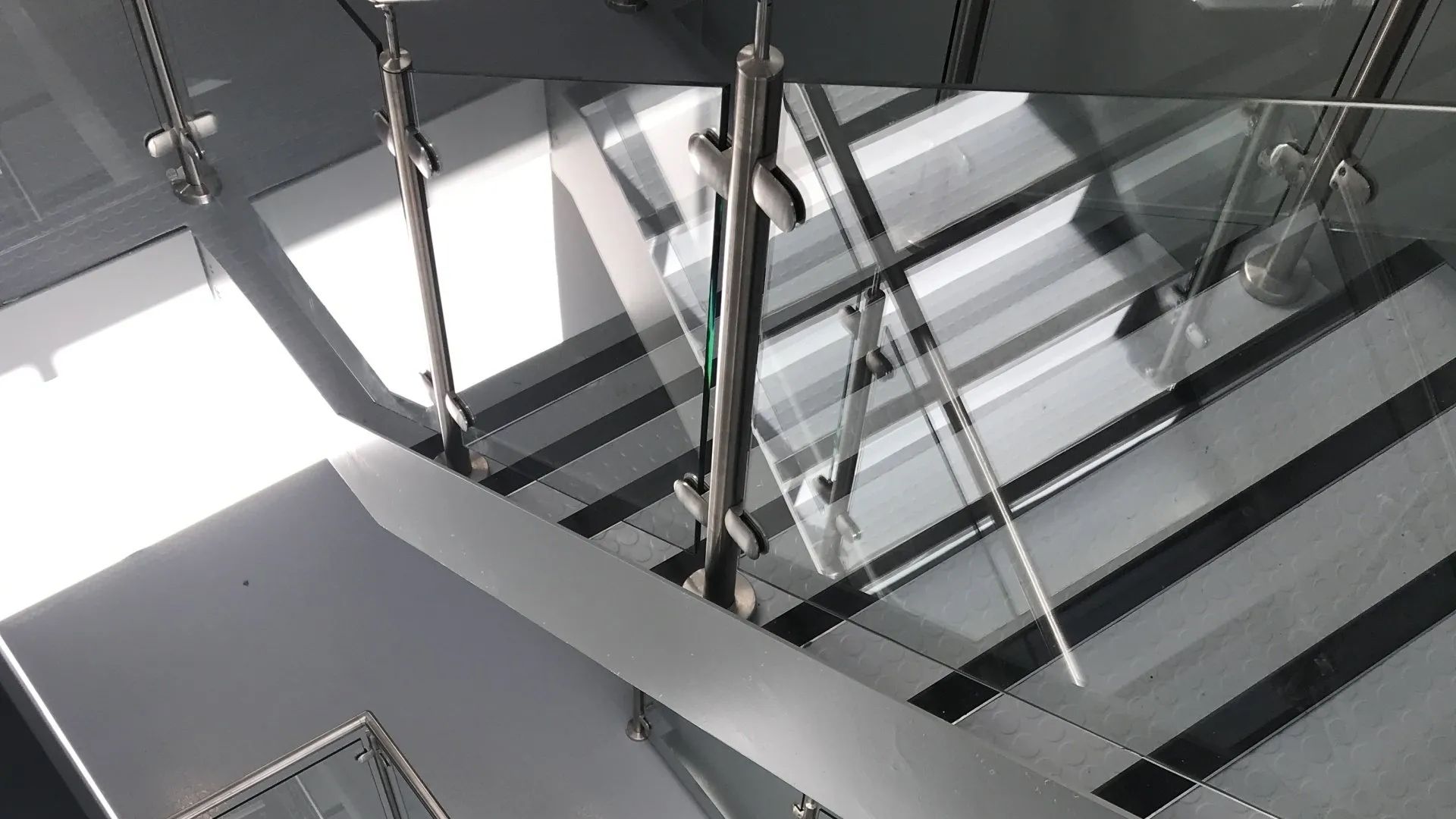Glass balustrades offer a modern and sleek addition to homes and commercial spaces, creating both aesthetic appeal and safety barriers. However, having a comprehensive understanding of UK safety regulations is essential for ensuring a safe and compliant balustrade installation.
In this guide, we’ll review the primary regulations, material standards, and installation guidelines for glass balustrades to keep your space secure and stylish.
Key Regulations for Glass Balustrades in the UK
In the UK, glass balustrades must meet specific Building Regulations, primarily under Approved Document K. This document outlines the standards for safety barriers to prevent falls and ensure durability in both residential and commercial settings.
Key points include:
● Minimum Height Requirements: For residential balconies, glass balustrades should have a minimum height of 1,100mm. For stairs, a minimum of 900mm is required. These dimensions help prevent accidental falls while maintaining a clear line of sight.
● Load-Bearing Requirements: Balustrades must withstand certain impact loads. For example, residential balustrades should support at least 0.74kN/m, while those in public spaces often require a higher load-bearing capacity to accommodate greater traffic.
● Edge Protection and Handrails: Balustrades need to offer edge protection. In some cases, a handrail is mandatory, especially on staircases. Handrails provide added safety, especially for children or those with limited mobility.
Glass Type and Thickness Requirements
The strength and quality of the glass used in balustrades is another critical aspect of safety compliance.
To meet UK safety standards:
● Tempered and Laminated Glass: The glass should be either tempered (toughened) or laminated to prevent shattering. Tempered glass undergoes special heating processes, which make it up to four times stronger than standard glass.
● Thickness Specifications: For unframed glass balustrades, the thickness typically starts at 10mm but may be increased depending on the application and expected load. Framed balustrades, which have added structural support, can sometimes utilise slightly thinner glass, but 10mm is still a common standard.
Using quality, durable glass is not only about adhering to regulations but also ensuring long-lasting, safe balustrade installations that can withstand daily use.
Installation and Compliance
Balustrade installation is a specialised process requiring both technical skill and compliance with safety regulations. Installers should follow precise specifications to maintain the structural integrity of the glass. Proper anchoring to floors, walls, or frames is essential to prevent dislodging. Additionally, installers should test the balustrade for stability after installation to confirm that it meets the required safety standards.
Why Choose TSS Balustrade Centre for Glass Balustrades in Newport?
At TSS Balustrade Centre, we specialise in supplying and installing high-quality glass balustrades in Newport for both residential and commercial properties. With an expert understanding of UK safety standards, we offer durable balustrades tailored to your design needs. Our experienced team is committed to providing safe, stylish and compliant balustrade solutions.
Contact us today to discuss your glass balustrade needs and benefit from our industry expertise in Newport and beyond.
"Our success has been defined by a combination of service level commitment and quality of products"
GET IN TOUCH
TSS Balustrade Centre
Unit E Leeway House
Leeway Industrial Estate
Newport
Gwent
NP19 4SL
Contact Us
We will get back to you as soon as possible.
Please try again later.
IMPORTANT LINKS
OPENING TIMES
- Mon - Thu
- -
- Friday
- -
- Sat - Sun
- Closed
All Rights Reserved | TSS Balustrade Centre
TUBE AND STEEL SUPPLIES LTD. is an Introducer Appointed Representative and provides a pure client Introduction through Improveasy Ltd., a company registered in England and Wales (Co. Reg. number 7807352). Registered Office: Station House, Stamford New Road, Altrincham, Cheshire, WA14 1EP. The firm is authorised and regulated by the Financial Conduct Authority (FRN 708623). The firm is authorised as a Broker, not a Lender and offers credit facilities from a panel of lenders. The credit is subject to application and status.

